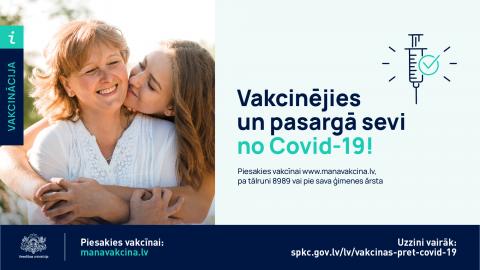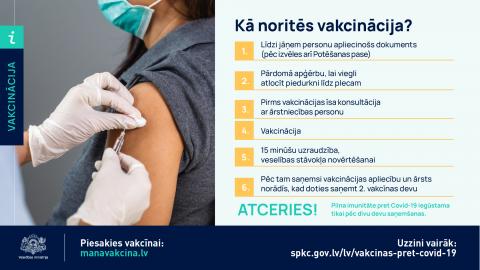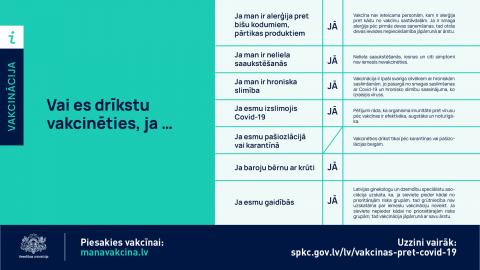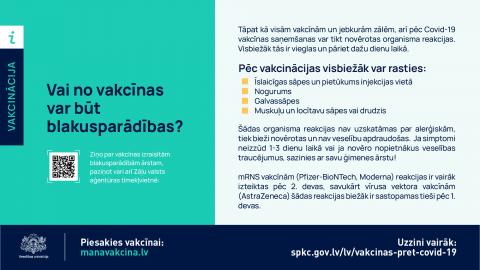Vaccination process in Latvia
Last update 15.04.2021
In Latvia, the vaccination process was launched on 28 December 2020, when the 10 largest hospitals of the country started vaccinating medical staff.
Answers to frequently asked questions about Covid-19 vaccines and the vaccination process can be found on the website of the Centre for Disease Prevention and Control (SPKC). We encourage everyone to use this site as a reliable source for official and up-to-date information on Covid-19 vaccines!
Vaccination against Covid-19 is voluntary, including for healthcare professionals. Taking into account the gradual entry of vaccines into the market, the most vulnerable groups within Latvian society are vaccinated first.
The first vaccines are given to healthcare workers working with Covid-19 patients in hospitals and in the Emergency Medical Service. Afterwards, vaccines are provided to the following groups in this order:
- Healthcare workers (ones who work with Covid-19 patients; medical practitioners in hospitals, educational institutions, and providing outpatient services; GPs; pharmacists; etc.), patients with serious medical conditions or awaiting urgent operations (e.g., oncology patients, patients waiting for surgery, hospitalised long-term, etc.);
- Patients with chronic diseases. Find out more!
- Social care centres (and similar), public officials critical for the continuity and security of State affairs;
- Seniors over 60, patients with certain chronic diseases and their household members, persons caring for the seriously ill at home;
- Employees of educational institutions, employees of operative services, employees of the NAF, prisons, and the State Probation Service, employees critical for the energy supply chain;
- Persons in special institutions (imprisonment, shelters);
- Employees critical for different sectors, staff of religious organisations;
- Employees interacting with large numbers of people, employees who work in large teams and have to work together, employees of the most important companies economically;
- All other inhabitants.



